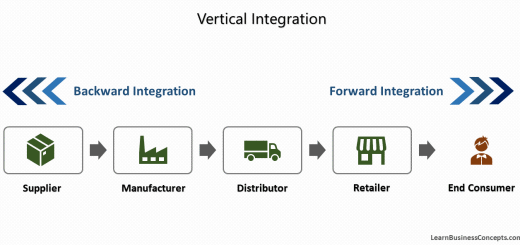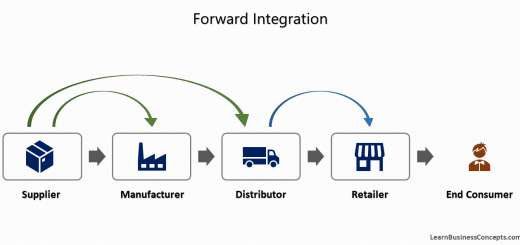The Four Functions of Management
Every company implements their own strategies to ensure continuous growth. Management plays a key role in planning the strategies, executing them, monitoring the results, and controlling. To successfully mitigate the key business challenges of today’s world, managers and key leaders use the functions of management as a basis.
Henri Fayol originally identified five functions of management, which he labeled as planning, organizing, commanding, coordinating, and controlling.
But now there are four commonly accepted functions of management as following.
1. Planning Function
Planning is the first function of management. This simply means defining a set of corporate goals and determine how best to accomplish them. The planning function involves decision-making to achieve corporate goals and choose the best action from a set of alternatives to meet them. The planning function is the foundation for the rest of the three functions.
Strategic decisions are made during the planning function to set a corporate direction. Managers conduct planning with the help of in-depth analysis of the company’s current state of operations, vision, mission, corporate goals, and assessing what resources are available. The planning function supports maintaining managerial effectiveness by guiding future actions.
Approaches to the Planning Function,
i) Strategic Planning
This type of planning is often carried out by the top management of the company. During strategic planning, top management usually creates goals for the entire company. SWOT analysis is conducted to understand the strengths, weaknesses, opportunities, and threats of the entire company. Top management creates a plan of how the corporate objectives can best compete in its environment. Strategic planning usually has a long timeframe of three years or more.
ii) Tactical Planning
Tactical planning is the mid timeframe planning of a strategic plan that will take a year or less to achieve. This is normally the responsibility of the middle management of the company. Tactical planning is usually aimed at a specific function of the company such as sales, production, finance, or human capital.
iii) Operational Planning
Operational planning is the ground level of planning according to the strategic plan and tactical plan. This is the operational level of the planning where day-to-day or else weekly plan is created to meet the steps of the bigger objective.
Planning function mainly involves following,
- Allocate employee resources
- Delegate responsibilities
- Set realistic timelines and standards for completion
- Setup priority levels for the tasks
2. Organizing Function
Organizing is the second function of management. The organizing function will ensure that the agreed plans move closer to realization. This function involved how best activities and resources should be assembled and coordinated to meet the plan.
The objective of the organizing function is to allocate the resources and delegate tasks to accomplish the goals discovered in the planning stage. It is essential that each employee must understand their duties to fulfill those according to the expectation of the management.
Organizing function involves macro-level tasks such as establishing processes to achieve the desired goals and driving the daily operational tasks by ensuring optimum utilization by allocating the tasks to the correct resources. Also, the organizing function requires collaboration and clear communication extensively.
Example: Company’s business development department has agreed on a plan to launch a new social media advertising campaign for their latest product. During the organization stage, the company may hire an advertising agency, communicate with them, identify the social media channels, etc. All of these organizing-related tasks will be done during this function.
3. Leading Function
The third management function is Leading. Leading is motivating and influencing people to achieve the desired outcome. Leading is considered as the most challenging function of managerial activities.
Managers should think beyond directing and delegating to ensure the performance of their team. True managers connect with their subordinates through interpersonal skills to inspire and encourage them to perform at their level best.
The creation of a positive attitude towards the work is generally known as leadership. Strong leaders manage the pressures of customers and senior management and create a positive working culture for their team members.
Read about Leadership Styles and How to Find Your Own
4. Controlling Function
Controlling is the fourth function of management. This is the process of evaluating the execution and making adjustments to ensure corporate goals are achieved. Managers usually consider different criteria for controlling function such as quality, budget, resource utilization, task scope, etc.
The controlling function is also known as Monitoring. Managers conduct measuring, analyzing, comparing, and identifying deviations to ensure the corporate objectives have been met, and conduct corrective actions for the same.
It is essential to ensure that the deadlines given for the employees have been met, while simultaneously balancing the resources and budget. Employee performance appraisals are conducted to provide feedback for the work done by employees, highlight positive/negative remarks, and provide incentives for them.


